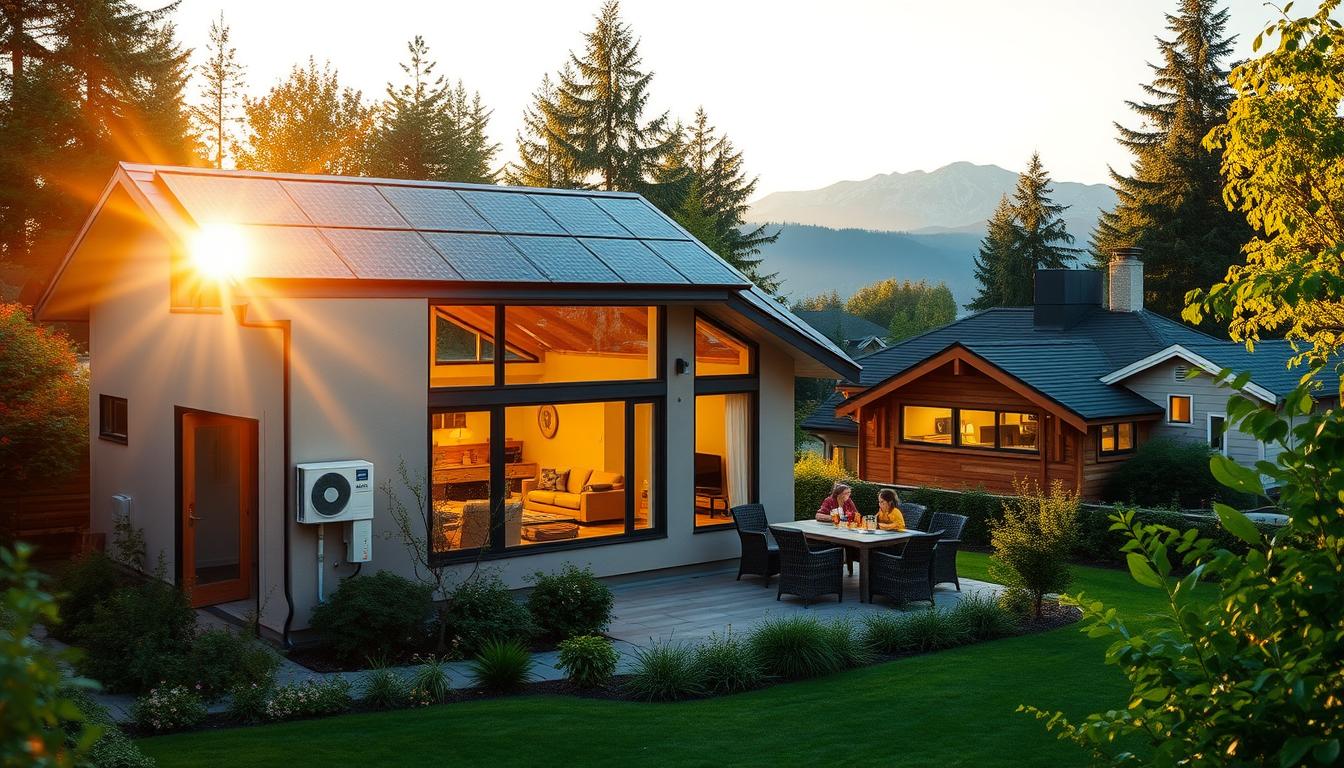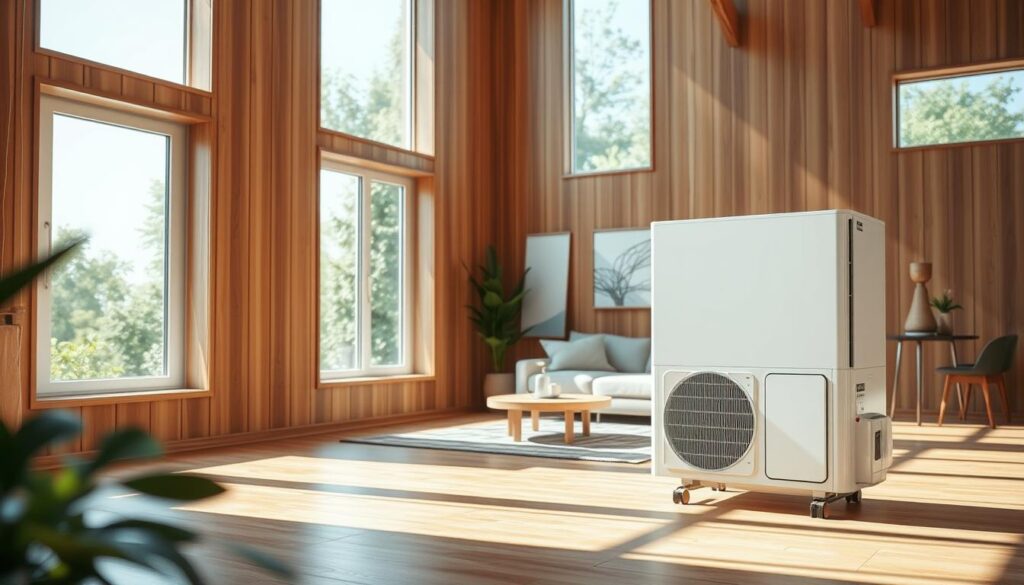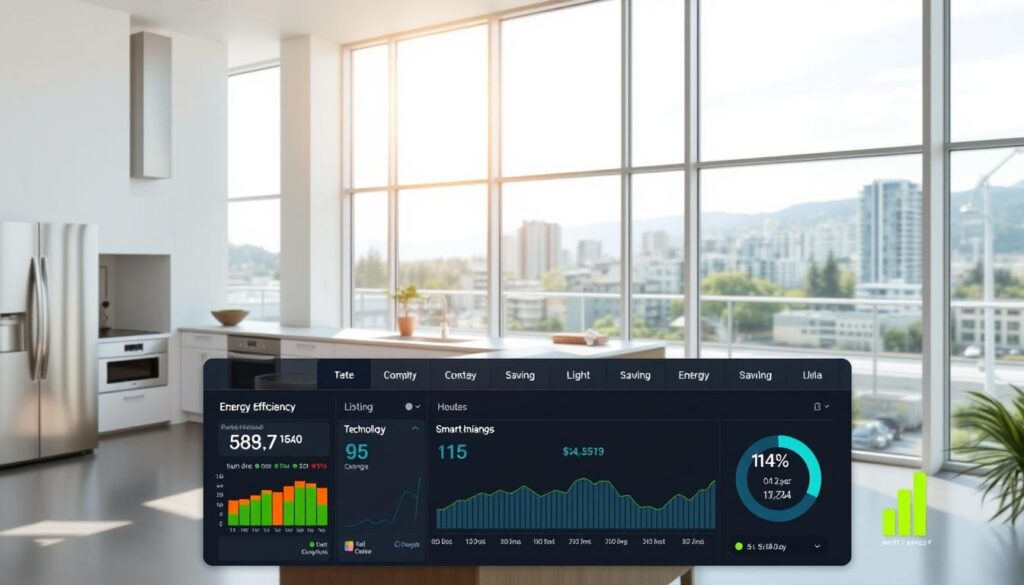
Can one smart retrofit truly cut bills, improve comfort and protect your building against coastal moisture—without costly surprises?
We are Lord Mechanical LTD, your North Shore mechanical and plumbing experts. We guide North Vancouver homeowners and business owners with clear, data-backed advice and practical solutions.
Our team explains why local climate makes targeted measures a smart investment for your home or commercial space. We show where to start, how to plan a phased retrofit, and which measures deliver the fastest energy savings while keeping indoor air quality and durability high.
We outline a simple path—assessment, design, installation, verification—so you can make confident choices that save money and boost property value. Call us at 604-670-3737 for tailored recommendations and professional installation across North Vancouver and West Vancouver.
Key Takeaways
- Coastal climate makes targeted measures a year-round benefit for homes and buildings.
- We prioritise fixes that improve comfort and deliver near-term savings.
- A phased plan reduces disruption and spreads cost over time.
- Proper documentation preserves grant and warranty eligibility.
- Call Lord Mechanical LTD at 604‑670‑3737 for a tailored assessment and installation plan.
Why Energy-efficient upgrades matter in North Vancouver’s climate
Coastal climates demand a different approach to heating, cooling and building resilience. In typical buildings, heating and cooling represent about 43% of a home’s utility bill. That makes targeted measures both practical and cost-effective.
Improve comfort, reduce energy use, and save money year‑round
Tightening the building shell and right‑sizing HVAC cut heat loss in winter and limit heat gain in summer. Eliminating drafts alone can save 5%–30% annually, and programmable controls can trim another ~10%.
Comfort is more than temperature: stable humidity, fewer drafts and quieter systems matter for daily life and productivity in homes and small businesses.
Buyer’s Guide scope for homes and small businesses
- Envelope measures, controls, water heating and heating/cooling systems for detached homes, townhomes, suites and street‑level commercial spaces.
- Tailored solutions for different occupancy patterns to avoid oversizing and wasted energy.
- Sequenced work protects durability—drier assemblies, less condensation and better indoor air quality.
We help you benchmark your building, choose practical ways to reduce energy demand, and plan phased work that fits your budget. Call us at 604‑670‑3737 for a tailored assessment.
Start smart: Home energy assessment and planning
Begin with a targeted inspection that maps heat loss, ventilation gaps and system inefficiencies. A clear assessment shows where your building loses energy and which interventions return the best value.
Free in-home energy assessment and what to expect
We offer a concise in-home assessment that includes a blower door test, insulation checks and a systems review. You’ll get a Renovation Upgrade Report with a practical action list that sequences low-cost, high-impact work first.
EnerGuide pre- and post-retrofit evaluations
EnerGuide evaluations measure performance before and after work. Canada Greener Homes provides up to $600 toward these assessments, plus grants for eligible retrofits.
Turning the report into a plan
We translate the Renovation Upgrade Report into timelines, documentation checklists and coordinated trades. Keep invoices, product labels and serial numbers; photos of concealed insulation help verification but do not replace required forms.
“Accurate measurement up front prevents surprises later and verifies results for grant eligibility.”
| Step | What we measure | Why it matters |
|---|---|---|
| Pre-retrofit assessment | Air tightness, insulation, HVAC | Targets biggest energy losses |
| Renovation action list | Sequenced tasks, costs, timelines | Reduces risk and downtime |
| Post-retrofit verification | Repeat tests, documentation | Confirms savings and grant eligibility |
Ready to begin? Call us at 604-670-3737 and we’ll arrange your energy assessment and next steps across North Vancouver and West Vancouver.
Prioritizing upgrades that deliver the biggest efficiency gains
Start by focusing on measures that cut the most heat loss and give the quickest return. We sequence work so each step reinforces the next and protects the building.
Air sealing first: stop uncontrolled air movement that drives heat loss and moisture. Hitting the air-change target can qualify for a $550 grant. Beat the target by 10% and the grant rises to $810; 20% better earns $1,000.
Targeted insulation: attic, walls, basements and crawl spaces slow heat transfer and stabilise indoor temperatures. Grants range from $210 up to $5,000 for eligible work.
“Seal first, then add insulation—this sequence multiplies savings and reduces condensation risk.”
| Measure | Typical benefit | Incentive examples |
|---|---|---|
| Air sealing | Immediate comfort, lower heat loss | $550 / $810 / $1,000 |
| Insulation (attic, walls) | Reduced heat transfer, supports smaller systems | $210–$5,000 |
| Windows & doors (ENERGY STAR) | Fewer drafts, control solar gains | $125 / $250 per opening up to $5,000 |
| Duct sealing | Stops up to 60% distribution loss | Lower operating cost, better comfort |
We add smart thermostats to automate setbacks and save about 10% annually. ENERGY STAR lighting and appliances cut lighting loads by 50%–75%, freeing capacity for future electrification.
Next steps: maintain product labels, invoices and serial numbers for verification. Call us at 604‑670‑3737 for a tailored plan across North Vancouver and West Vancouver.
Heating and cooling upgrades: heat pumps and beyond
Choosing and sizing a modern heat pump reshapes comfort, bills and system reliability in coastal homes. Heat pumps move thermal energy rather than create heat, so they out‑perform combustion and resistance heaters for the same delivered warmth.

Air-source vs ground-source for coastal BC
Air‑source (ASHP) units are common, lower‑cost to install and perform well in mild coastal winters. Ground‑source (GSHP), also known as geothermal, gives steady output in any climate but needs more site work and higher upfront cost.
Cold-climate performance and auxiliary heat
Cold‑climate ASHP models keep output at low temperatures and cut auxiliary heat use. Still, auxiliary electric or gas may be needed for rare peak loads or extreme snaps.
Professional installation and eligible products
We right‑size systems with load calculations, pick ducted or ductless distribution, and confirm eligible product lists. New equipment must be bought in Canada and installed by licensed pros to protect warranties and grant eligibility.
“Proper design and commissioning ensure the pump performs as specified from day one.”
- Consider controls, defrost strategy and drain management for damp coastal air.
- Plan electrical capacity and potential panel upgrades before work starts.
- Discuss heat pump water heaters if you plan broader electrification.
Call us at 604‑670‑3737 for a tailored heat pump plan across North Vancouver and West Vancouver.
Programs, grants and rebates in Canada and BC: what’s available now
Several current grant streams make it easier to plan and pay for practical efficiency work in BC homes and small businesses.
Canada Greener Homes Grant covers $125–$5,000 per eligible retrofit and pays up to $600 for EnerGuide evaluations. Households can claim up to $5,600 total. Air sealing tiers pay $550, $810 or $1,000 depending on performance. Insulation grants run $210–$5,000 by location.
Loan status: the Canada Greener Homes Loan is closed to new applicants as of October 1, 2025. Grants and other pathways remain open and can still help you save money on priority work.
Income-qualified assistance
Income-qualified programs may provide free home energy assessments, free insulation, ENERGY STAR smart thermostats, windows/doors rebates and subsidised heating options. Some schemes even cover ASHP or GSHP retrofits for qualifying electric-heated homes.
What to note for windows, thermostats, heat pump and renewables
- Keep ENERGY STAR labels and buy products in Canada or from Canadian distributors to protect claims.
- Heat pump systems must be on eligible product lists and installed by licensed contractors to qualify.
- Solar PV receives roughly $1,000 per kW installed; batteries paired with PV can get $1,000.
“Complete your pre-retrofit EnerGuide, keep invoices and labels, and book post-retrofit verification promptly to avoid payment delays.”
We help you choose registered contractors, assemble documentation and stack eligible measures so the project meets program rules and code. Call us at 604-670-3737 to map the best path for your building or home.
Costs, payback, and energy savings: making the numbers work
Let’s translate technical measures into dollars saved, payback timelines and long-term ownership costs. We show typical savings and a simple method to estimate payback in BC so you can prioritise the right work for your home or building.

Typical savings ranges from sealing, insulation, and HVAC improvements
Air sealing can cut drafts and deliver 5%–30% savings on heating bills. Duct leakage left unchecked can lose up to 60% of distributed heat, while heating and cooling make up about 43% of a home’s utility bills.
Programmable controls add roughly 10% in energy savings. Lighting upgrades reduce loads by 50%–75%. Water heating is near 12% of household bills; appliance loads are ~15%.
Estimating payback periods and total cost of ownership in BC
We calculate payback by combining measure costs, available grants, expected annual savings and maintenance. Lower building loads first—seal and add insulation—so you can right‑size the mechanical system and shorten payback for a heat pump or new boiler.
- Model best/worst energy use scenarios to test resilience to rising rates.
- Compare first cost to total cost of ownership: lifespan, service and warranties matter.
- Include water heating and duct fixes in the cash‑flow summary to see real money impacts.
“Fix the envelope, tune distribution, then invest in the right‑sized system to maximise savings.”
We prepare a clear cash‑flow summary and sensitivity table so you know expected savings, payback and long‑term costs. Call Lord Mechanical LTD at 604-670-3737 for a tailored estimate across North Vancouver and West Vancouver.
Selecting products and contractors in North Vancouver
Choosing the right equipment and contractor protects comfort, savings and grant eligibility. We focus on products that meet program lists and installers who know local code.
Choosing ENERGY STAR products and keeping documentation
We recommend ENERGY STAR and ENERGY STAR Most Efficient models for windows, doors and HVAC to help save energy and qualify for incentives. Buy equipment in Canada or from Canadian distributors so it appears on the official eligible list.
Keep labels, serial numbers and invoices intact until post‑retrofit verification. These items protect warranty claims and speed grant payments.
Working with registered program contractors and meeting code
We select registered contractors who understand program rules and building code. Licensed installers are required for heat pump work and for grant eligibility.
- We check whole‑system compatibility—controls, airflow and electrical—to prevent performance issues.
- We verify window flashing, insulation continuity and duct sealing to capture real efficiency gains.
- We coordinate permits, inspections and final documentation for a clean project close‑out.
“Proper procurement, installation and documentation secure incentives and lasting performance.”
Call us at 604‑670‑3737 for product shortlists, eligible lists and a contractor plan tailored to your home or building in North Vancouver and West Vancouver.
Conclusion
A clear plan turns a scattered list of fixes into measurable, long‑term savings.
We start with a home energy assessment, then focus on the building shell: sealing air gaps, adding insulation, and choosing the right windows and doors. This sequence reduces loads and makes your heating system smaller and steadier.
Modern heat pump options pair well with smart controls to cut energy use and improve comfort. We align work with grant rules, ENERGY STAR products and documentation so you save money and protect incentives.
Ready to proceed? Call Lord Mechanical LTD at 604-670-3737 and we’ll turn your assessment into a short, practical roadmap for your home or building in North Vancouver and West Vancouver.

